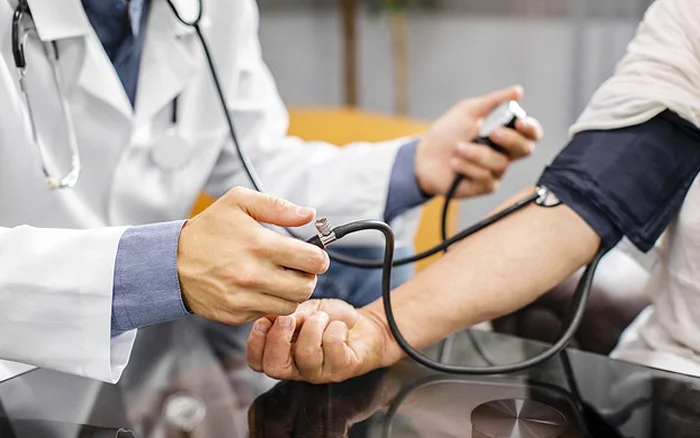Overview
Hypertension, also known as high blood pressure, is when your blood pressure, the force of blood flowing through your blood vessels, is frequently high.
High blood pressure is widespread. Recent surveys show that 50 million Americans suffer from hypertension. By the time they reach the age of 60, six out of ten people have high blood pressure, making it the second most common reason for visiting a primary care doctor.
Primary care physicians are the first to detect signs of hypertension. It is recommended that you consult your primary care physician every two years, starting at age 18 to monitor your blood pressure. If you have a history of hypertension, or if you are over 40, ask your doctor for blood pressure readings every year.
What are the signs and symptoms?
There are no signs and symptoms in most people with hypertension, even if blood pressure readings reach very high levels.
Some people with hypertension may experience headaches, shortness of breath, or nosebleeds. Still, these symptoms are not clear and typically do not occur until the blood pressure reaches a severe stage.
What causes high blood pressure?
Too much salt in the diet
Eating salt increases the amount of sodium in your blood, which increases your kidney’s ability to remove water. Due to the extra fluid and additional strain on the blood vessels leading to the kidneys, the result is increased blood pressure.
Stress
Your response to stress can have an impact on your blood pressure. Stress-related increases in blood pressure can be dramatic. But when you calm down, your blood pressure returns to normal. However, even a temporary rise in blood pressure can damage your blood vessels, heart, and kidneys.
Chronic Diseases
Certain chronic diseases like kidney disease, diabetes, and sleep apnea can also increase your risk of high blood pressure.
Overweight
Being overweight means, you need more blood to supply oxygen and nutrients to your tissues. As the volume of blood increases, so does the pressure on the walls of your arteries.
Alcohol
For women having more than one drink a day, and for men, more than two drinks a day can affect your blood pressure.
Age
As you grow older, your arteries become stiffer, and the resistance inside them increases, making it difficult for the heart to pump blood. The result is an increase in systolic blood pressure.
Family history
Hypertension is more likely to run in families.
Medications
Some prescriptions and over-the-counter drugs, as well as some supplements, can increase your blood pressure, examples include Indomethacin, Venlafaxine, Pseudoephedrine, and birth control pills.
What complications can hypertension lead to?
If left untreated, hypertension can lead to several complications, such as:
- Heart attack or stroke
- Heart failure
- Aneurysm
- Atrial fibrillation
- Metabolic syndrome
- Loss of vision
- Trouble with memory
- Kidney damage
- Dementia
MMA’s primary care physicians’ approach to hypertension
Managing and treating hypertension requires the expertise and care that only Manhattan Medical Arts can provide. Our primary care physicians will work closely with you to create a customized treatment plan that works best for you and keeps your blood pressure levels as normal as possible.
We believe in providing accessible, cost-effective, and efficient care that meets the expectations of our clients and strives to maintain the highest standards of safety and quality health care in all our facilities, for all our patients.
– Disclaimer –
This blog is for informational & educational purposes only, and does not intend to substitute any professional medical advice or consultation. For any health related concerns, please consult with your physician, or call 911.
Last reviewed by Dr. Syra Hanif, M.D. on 03/10/2020
Learn more about our editorial process.
-
About The Author
Dr. Syra Hanif M.D.Board Certified Primary Care Physician
Dr. Syra Hanif is a board-certified Primary Care Physician (PCP) dedicated to providing compassionate, patient-centered healthcare.
Read More


